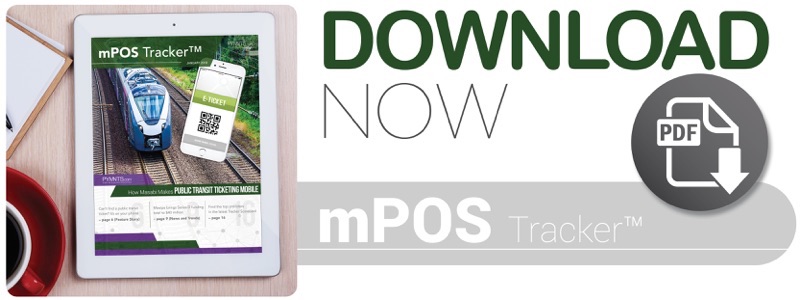How Masabi Makes Public Transit Ticketing Mobile

It’s a problem with which most commuters are familiar, though many likely wish they were not. They wake up, get ready to go, walk to their bus or train stops and reach for their transit tickets only to realize said ticket is sitting on a dresser or bedside table.
Even if they muster up the patience to take that long walk back to their homes and then again to the stations, their troubles might not be over. There’s credit to be added to said ticket, of course, leaving little time to find the appropriate terminal and make a payment — often resulting in them rushing around only to arrive as their trains or buses roll by.
According to Jonathan Donovan, chief product officer at mobile ticketing and payment technology provider Masabi, one only needs to fish out a cell phone to put these troubles to rest. In a recent interview with PYMNTS, Donovan explained how the company works to replace good ol’ transit tickets in 30 global markets.
Using Masabi’s platform, commuters are never more than a tap of their smartphones away from their transit tickets — and just as close to buying new tickets or renewing expired ones.
“In 2007, we started our first trial with a company called Chiltern Railways in the U.K.,” Donovan said. “That was essentially just our first mobile ticketing app for trains, designed around the idea of eventually getting your ticket on a smartphone, and it’s really accelerated from there.”
From paper to digital
In that 2007 pilot test program, commuters could buy tickets in-person or online and have them delivered to their mobile phones. They could then present their mobile tickets to conductors when boarding the train.
Three months in the pilot test, Masabi worked with Cubic Transportation Systems to build a solution that allowed the tickets to be read by an unmanned device. Finally, in October of that year, Masabi debuted the first rail ticket purchasing platform allowing passengers to both pay for and display their tickets from one mobile app.
After finding success with Chiltern Railways, Masabi turned its attention to building a mobile ticketing system for the U.K.’s national railroad system. Before too long, the company would expand beyond its native country, launching its first international offering just five years after entering the mobile ticketing and payments space.
“In 2012, we moved beyond the U.K. with a platform called JustRide, which is a cloud-based collection of railways, and we launched in Boston with the city’s commuter rail service,” Donovan said. “From there, we’ve moved to a number of different agencies, not just in the United States but around the globe.”
Something for everyone
Today Masabi works to serve a range of organizations of varying size and scope by providing an end-to-end solution covering the entire ticketing experience — including purchasing, inspection and enforcement.
“I think it’s the company’s ability to work at scale and its flexibility that’s allowed us to offer the platform to everyone — from agencies the size of the MTA in New York or the MTBA in Boston to much smaller local and regional transit authorities — in an efficient [way],” Donovan explained. “That’s really the benefit our solution and our platform offers. The architecture of our offering allows us to deploy very quickly and to a diverse group of customers.”
Masabi’s white-label offering includes a consumer-facing app allowing riders to view different ticketing and scheduling options and make purchases via a standard credit card, debit card or eCheck. It also provides an inspector app for handheld mobile devices, giving transit employees the ability to check tickets and enforce punishment or fines for consumers riding without proper credentials.
In addition, Masabi’s solution includes a hub for transit authority administrators, enabling agency employees to manage prices and taxes, monitor ticket sales data, compile revenue and usage reports and analyze operational trends and incidents.
Since 2012, the company’s reach has grown to serve a total of 30 transit authorities and operators in several different countries, Donovan said. Most recently, Masabi expanded to offer ticketing solutions for railways in Australia and buses in Alaska.
A mobile future
Though the app has evolved to include new or upgraded reporting, enforcement, payment and ticketing, the company’s basic goal and priorities of its offering have continued to center around providing a more convenient ticketing experience for consumers and an effective enforcement solution for cities and transit authorities.
Donovan foresees continued growth in 2018 and beyond. The ever-increasing function of mobile devices in the lives of consumers around the globe likely means they would more frequently turn to mobile devices when purchasing a train or bus ticket.
“Instead of walking to a ticket vending machine and waiting in line, or going to a ticket counter as I’m walking to the station, I can buy a single ride ticket, a weekly or monthly pass or any other option right from my phone without any other steps or waiting,” he said. “I think that kind of convenience and ease of use is only going to become more important to consumers as time goes on.”
With global mobile penetration expected to reach more than half the world’s population, it seems it won’t be long before transit systems worldwide hop aboard the mobile ticketing bandwagon.
